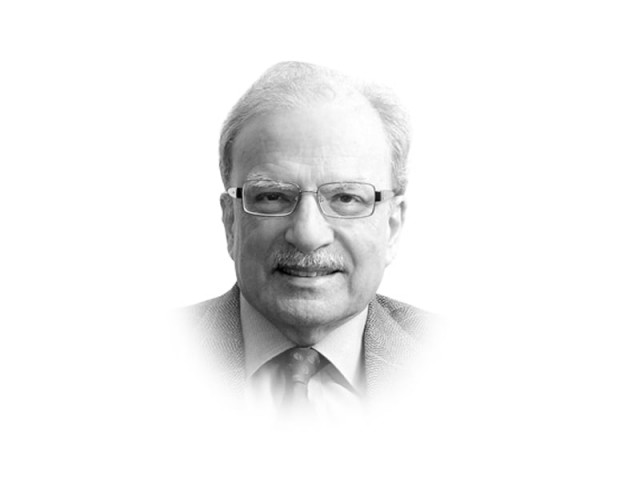A new global order is emerging
Under Trump relations between the United States and China have not begun well

The writer is a former caretaker finance minister and served as vice-president at the World Bank
Let us begin with the first: interactions among four contenders on the world stage. These are the United States, China, India and Russia. What needs to be noted is that relations among these four players have taken binary forms. The institutions currently available were designed for multilateralism not for bilateralism. The future world order will be shaped by at least five bilateral relations: Sino-American, Sino-Russian, American-Russian, Sino-Indian, and American-Indian. China is one element that is common to these relations. In this context the most important relationship will be the one involving Beijing and Washington.
Warren I. Cohen, long-time observer of interaction between America and China, makes the following observation in his review of a recent book by John Pomfret. “As President-elect witlessly roils the waters across the Pacific, foreign affairs specialists agree that management of relations between the United States and rising China surpasses all other international issues, quite possibly for the remainder of the century. In The Beautiful Country and the Middle Kingdom, John Pomfret reminds us that the two countries have disappointed each other since their earliest contacts, but have always muddled through. Perhaps overly optimistic, he imagines they will again.” With Trump in the saddle, it is not clear in which direction the United States will ride with respect to its relations with China.
There is one important difference in the way Xi Jinping of China and soon-to-be president Donald Trump will approach relations between their two nations. Xi, following the tradition established by the leadership circles in China,will let history inform the making of foreign policy. He will be aware of the works such as those by John Pomfret. Chinese value consistency. Donald Trump reads little and has practically no knowledge of history.
In the few weeks since winning the presidency, he has flip-flopped on a number of issues including those concerning his country’s relations with China. He showed no interest in history be accepting the call from the president of Taiwan,thus establishing a link with the Taiwanese senior leadership American presidents since Richard Nixon had agreed not to have in place as a part of the United States’ acceptance of the One China” policy. President Obama said in a news conference a few days after Trump’s conversation with the Taiwanese president that “the idea of ‘One China’ is at the heart of their conception as a nation. And so, if you are going to upend this understanding, you have to have thought through the consequences, because the Chinese will not treat it the way they’ll treat some other issues.”
But talking to the Taiwanese president was not the only jolt Trump delivered to China. In reacting to the “drone-capture incident” when the Chinese navy picked up a submergible drone belonging to an America naval vessel, Trump took to tweets expressing different views within a few hours. His initial Twitter post, Trump said: “China steals United States Navy research drone in international waters – rips it out of water and takes it to China in an unprecedented act.” He viewed the Chinese action as a grave affront. However, after the Chinese agreed to return the submarine drone he tweeted: “We should tell China that we don’t want the drone they stole back.”
Trump used the appointments he made to the senior positions in his administration as signals concerning the policy content of his governance. In keeping with his style, some of these signals were mixed. He nominated Terry E. Branstad, Governor of Iowa, as the United States ambassador to China. The governor had friendly relations with China’s President Xi Jinping. But he followed up by creating a new White House office overseeing American trade and industrial policy and putting the University of California’s economist Peter Navarro in charge. The professor had said in many writings that China was effectively waging a trade war against America.
Under Trump relations between the United States and China have not begun well. The Chinese are watching and will begin to act once Trump has taken office. Which way the relations will go will matter for Pakistan, a subject to which I will return sometime in the future.
Published in The Express Tribune, December 26th, 2016.
Like Opinion & Editorial on Facebook, follow @ETOpEd on Twitter to receive all updates on all our daily pieces.















COMMENTS
Comments are moderated and generally will be posted if they are on-topic and not abusive.
For more information, please see our Comments FAQ